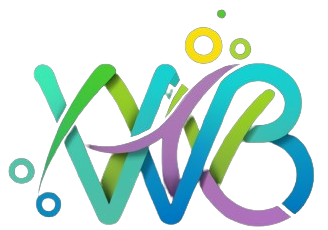In the fast-evolving digital age, words and phrases often travel across cultures, languages, and platforms at the speed of a click. One such term gaining attention lately is . At first glance, this phrase may seem unfamiliar or even cryptic, but its growing popularity in online communities and pop culture makes it worth exploring. In this article, we uncover the meaning of, its cultural significance, and how it ties into the broader concept of MVR.
What Does Mean?
“Yaki Na La” appears to be a slang or informal phrase that has surfaced in various digital subcultures. It is often used in memes, music lyrics, and online gaming communities. While it doesn’t have a fixed dictionary definition, many believe loosely translates to something like “Bring it on” or “Let’s go”, conveying a bold, confident, and playful tone.
Some interpretations connect it to African, Creole, or urban street languages, but the phrase also pops up in anime fandoms and global chatrooms. Like many viral terms, its exact origin is unclear, but its essence lies in energy, defiance, and fun.
The Rise of Yaki Na La in Pop Culture
The popularity of Yaki Na La can be credited to various online creators, TikTok trends, and gaming communities. Here’s how it spread:
- Social Media Trends: On TikTok and Instagram Reels, content creators use “Yaki Na La” as a catchphrase or audio overlay while showing off dance moves, fashion, or comedic skits.
- Gaming Slang: In games like Fortnite, Call of Duty, and Roblox, players use it in chat as a battle cry or a taunt after achieving victory.
- Music and Rap Lyrics: Underground hip-hop artists and freestyle rappers have started including the term “Yaki Na La” in their lyrics, treating it like an urban mantra.
Its spread is a classic example of internet linguistics, where phrases gain momentum based on rhythm, repetition, and relatability.
La Just a Trend?
It might seem like just a trend, but like most viral languages, “Yaki Na La” reflects something deeper: the desire for identity, expression, and connection. In marginalized communities, coded phrases often evolve to protect culture, communicate attitude, or build tribe-like connections.
For example, Gen Z uses “Yaki Na La” much like Millennials used “YOLO” (You Only Live Once) or how hip-hop fans used “Fo shizzle.” It represents youth expression, swagger, and a shared vibe.
Understanding MVR Meaning about
Now let’s dive into the second part of our keyword: MVR meaning.
1. Motor Vehicle Record (MVR)
In legal and administrative terms, MVR refers to your Motor Vehicle Record, a history report of your driving activity, often used by insurance companies or employers.
- This version of MVR has no direct connection to, but both reflect different aspects of identity, one official and administrative, the other cultural and expressive.
2. Multiple Variable Response (MVR)
In data science or marketing, MVR stands for Multiple Variable Response, used in customer analytics and machine learning.
- Interestingly, this technical MVR meaning can link back to trends like Marketers use MVR techniques to track viral slang, assess user engagement, and predict trend adoption.
3. Minimum Viable Record (MVR)
This refers to the simplest version of a record or dataset that’s still useful, often used in startup or digital product contexts.
- In social content strategy, this applies to how minimal data, like a phrase or hashtag, can be enough to start a viral movement, much like “Yaki Na La” did.
A Digital Symbiosis
While Yaki Na La and MVR may seem unrelated on the surface, both reflect how language and data interact in the digital world. Here’s how:
MVR Meaning
Language Type Slang / Informal Technical / Formal
Used In Social media, games, pop culture , Insurance, analytics, and tech
Purpose : Expression, emotion, identity , Records, tracking, performance
Connection Cultural signal Analytical signal
Viral Potential High Data source for trend tracking
The next time you hear “Yaki Na La” in a TikTok or read MVR in a policy document, you’ll recognize how both are records of one culture, one formally shaping the world in their ways.
If you’re a content creator, brand strategist, or even a casual poster online, using “Yaki Na La” can give your content a playful, Gen Z edge. But authenticity is key. Here’s how to use it wisely:
- Memes: Add it as a punchline or caption to a funny or victorious moment.
- Music: Use it as a hook or chant. It’s rhythmic and catchy.
- Gaming: Drop it after a kill streak or a competitive win.
- Fashion: Launch a slogan tee or hoodie with “Yaki Na La” to grab attention.
Conclusion
“Yaki Na La” is more than a phrase; it’s a vibe. It represents the fearless, expressive, and rhythmic nature of internet culture. Whether you’re shouting it during a game or seeing it trend on social media, it’s a linguistic symbol of youth confidence and energy.
On the other hand, MVR meaning teaches us how data underpins modern interaction, whether it’s about vehicle records, user analytics, or product design. Together, these two seemingly unrelated ideas show the harmony between human expression and digital measurement.
, smile because you now know it’s not just a phrase, it’s a cultural spark with hidden depth, even in the world of MVR.



